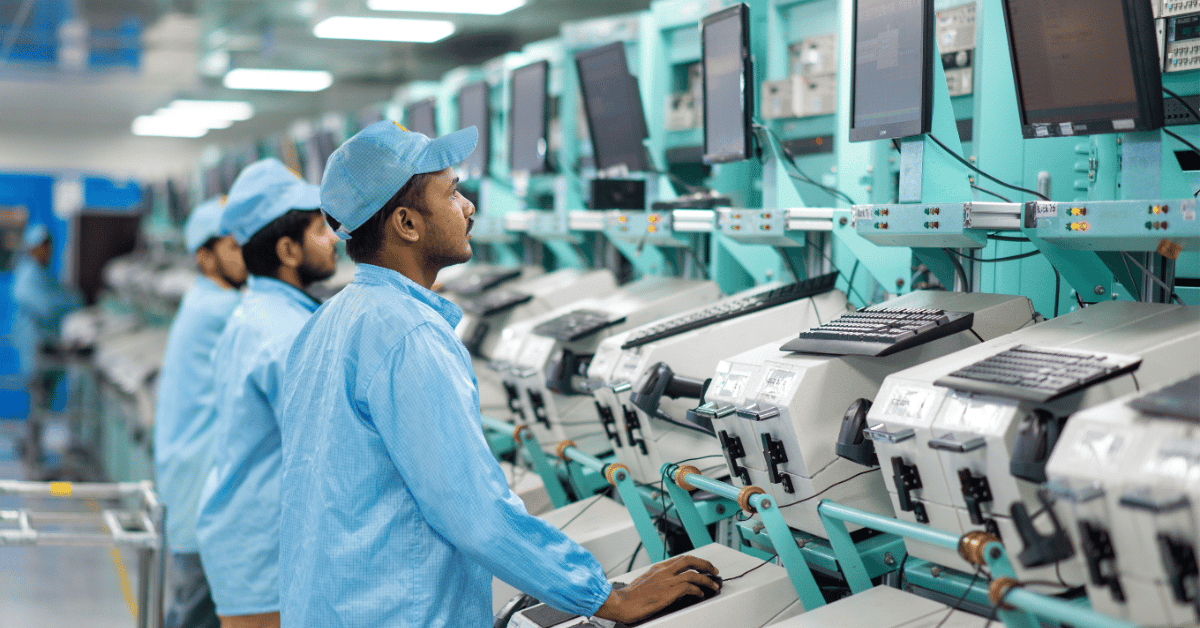MeitY is holding talks with stakeholders to determine whether import monitoring system for IT hardware products should continue in “present form” or is there a need for a more tighter regime
The government wants increased vigilance on China as there could be both security risks and the threat of dumping associated with imports from the country, said a source
Imports of the seven IT hardware items under the import authorisation regime, implemented in October 2023, declined 3.4% YoY to $8.4 Bn in FY24
As the September 30 deadline nears for the expiration of the import authorisation regime for IT hardware products, the Centre is holding extensive talks with stakeholders to chart a path forward.
A government official told Hindu businessline that the ministry of electronics and information technology (MeitY) is deliberating with stakeholders to determine whether the import monitoring system should continue in its “present liberal form” or is there a need for a more tighter regime.
As per the report, the government is also mulling a third option which entails reverting back to the free import regime. This comes as the monitoring system is all set to lapse on September 30, 2024.
“Once the MeitY decides on the preferred import regime for the seven IT hardware items beyond September 30, it will communicate its decision to the Directorate General of Foreign Trade following which further action will be taken,” the official reportedly said.
Notably, the official also said that imports of the seven IT hardware items under the import authorisation regime, implemented in October 2023, declined 3.4% year-on-year (YoY) to $8.4 Bn in fiscal year 2023-24 (FY24).
It added that while overall numbers fell, imports of the seven IT hardware products from China stayed flat YoY at $5 Bn in FY24 too and accounted for 58%-60% of total imports.
Notably, the Centre had cited national security and data safety concerns for instituting the new authorisation regime last year. WIth imports from China remaining flat, the monitoring system appears to have not lived up to its name.
“While no country has been officially named, the government wants increased vigilance on China as there could be both security risks and the threat of dumping associated with imports from the country. The future of India’s production linked incentive (PLI) scheme that incentivises domestic manufacturing could be at stake if there is a spurt,” the official reportedly added.
Industry Knocks On Govt Door
Meanwhile, industry body Information Technology Industry Council (ITIC), which represents industry giants like Apple, Dell, HP and Lenovo, has reportedly written to MeitY to seek more clarity on the import policy for the seven IT hardware products after the import authorisation regime expires on September 30.
The ITIC called on the government to release draft guidelines for such imports and seek public feedback ahead of the deadline.
“It is critical that the government again take actions to enable early stakeholder engagement to ensure these critical goods remain available in India and to prevent far-reaching unintended consequences on key sectors,” ITIC reportedly said in a letter seen by Moneycontrol.
The industry body also said that an abrupt shift in the import regime could “disrupt vital sectors reliant on electronics goods across India”, adding that the Centre should provide a reasonable transition time period in the event of a policy change.
The development comes a year after the Directorate General of Foreign Trade (DGFT) in October last year imposed restrictions on the import of certain IT hardware items including servers, computers, and data processing machines.
Afterwards, the Centre directed companies to apply for government authorisation to import these products. At the time, the Centre had said that the policy was formulated to monitor the exports to the country.
The official quoted above reportedly added, “There has hardly been any rejection of import applications except for perhaps a couple due to technical reasons and not for any intention to contain imports”.
While the new regime appears to have hit imports, it remains to be seen whether the government further tightens its monitoring system or reverts back to the old regime.
Disclaimer
We strive to uphold the highest ethical standards in all of our reporting and coverage. We StartupNews.fyi want to be transparent with our readers about any potential conflicts of interest that may arise in our work. It’s possible that some of the investors we feature may have connections to other businesses, including competitors or companies we write about. However, we want to assure our readers that this will not have any impact on the integrity or impartiality of our reporting. We are committed to delivering accurate, unbiased news and information to our audience, and we will continue to uphold our ethics and principles in all of our work. Thank you for your trust and support.



![[CITYPNG.COM]White Google Play PlayStore Logo – 1500×1500](https://startupnews.fyi/wp-content/uploads/2025/08/CITYPNG.COMWhite-Google-Play-PlayStore-Logo-1500x1500-1-630x630.png)